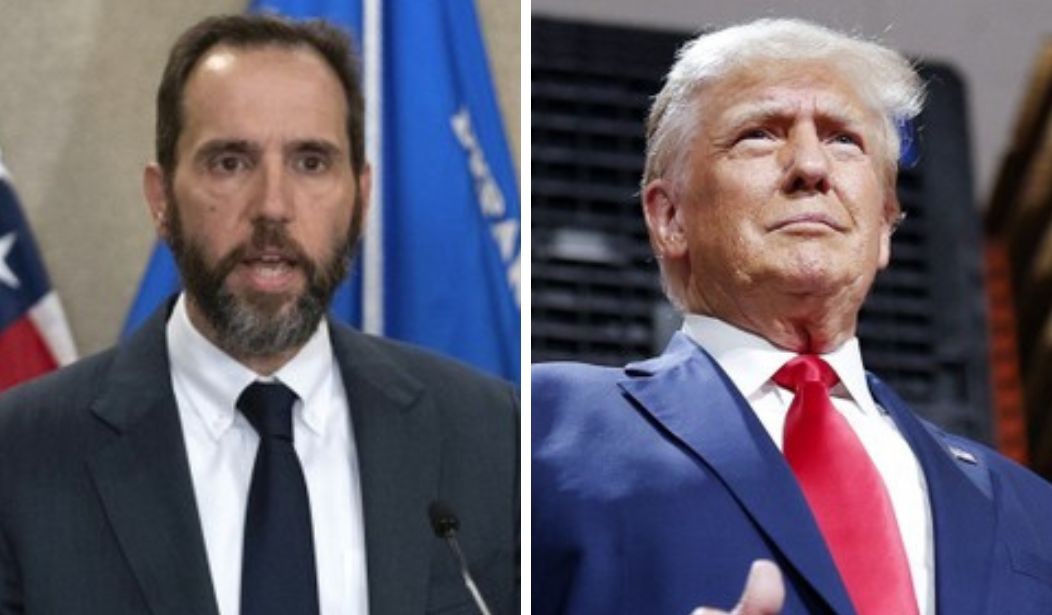On Friday, the Supreme Court formally sent the case brought by Special Counsel Jack Smith against former President Donald Trump regarding the 2020 election back to the lower courts for further proceedings consistent with its July 1 presidential immunity ruling. In response to the Supreme Court order, the Court of Appeals remanded the case to the District Court and Judge Tanya Chutkan.
NEW: Next Big Move in Trump 2020 Election Case Following Immunity Ruling
As noted in our reporting on that ruling:
No word yet on what sort of briefings or evidentiary hearings Chutkan will request in the matter, but presumably, we'll be seeing renewed activity in the matter shortly, particularly since Jack Smith is no longer tied up (for the moment) in actively prosecuting the classified documents case in Florida.
Chutkan allowed no dust to gather on the newly returned case. On Saturday, she issued two orders: one setting the case for a status conference and denying Trump's motion to dismiss on statutory grounds and one denying Trump's motion to dismiss for selective and vindictive prosecution (with an accompanying memorandum opinion).
In the first order, Chutkan, as noted, set the case for a status conference on August 16, requiring the parties to file a status report by August 9. That order also denied one of Trump's motions to dismiss the case, albeit without prejudice (meaning Trump can raise the issue again). That motion, filed on October 23, 2023, asserts that the prosecution failed to properly allege how Trump violated several statutes: 18 U.S.C§§ 241 (Conspiracy Against Rights), 371 (Conspiracy to Commit Offense or to Defraud United States), 1512(k), 1512(c)(2), 2 (Tampering With a Witness, Victim, or an Informant). (Note: 1512(c)(2) is the statutory provision implicated in the Supreme Court's ruling on the Fischer case.) As indicated, the denial of this motion was without prejudice, with Chutkan noting, "Defendant may file a renewed motion once all issues of immunity have been resolved."
Following Dismissal of Classified Documents Case Against Trump, Jack Smith Will Appeal
No Contempt for Jack Smith in Trump's D.C. Case, but Judge Chutkan Does Tighten the Reins
The second order, denying Trump's motion to dismiss for selective and vindictive prosecution and denying his request for an evidentiary hearing on the matter — also filed on October 23, 2023 — was accompanied by a 16-page memorandum, which includes some fairly sharp criticism of Trump's arguments in support of the motion. The full memorandum opinion may be viewed below, but here are some key excerpts:
At the outset, the court must address—as it has before—Defendant’s improper reframing of the allegations against him. See Trump, 2023 WL 8359833, at *1–3. He declares that the indictment amounts only to a Government “theory . . . that it is illegal to dispute the outcome of an election and work with others to propose alternate electors.” Motion at 6. That description mischaracterizes his alleged conduct. Defendant is charged with knowingly making false statements in furtherance of criminal conspiracies and for obstruction of election certification proceedings.
...
Defendant’s proffered evidence of discriminatory effect consists of a single paragraph of legal conclusions the court has already rejected. His main contention is that other people have committed the same conduct without being prosecuted.
...
Defendant posits that the Government’s prosecution is “driven by an unconstitutional discriminatory purpose” because: (1) President Biden’s “publicly stated objective is to use the criminal justice system to incapacitate” him, (2) the prosecutorial team itself is biased, and (3)the Indictment improperly prosecutes Defendant’s “beliefs” or “viewpoint.”
...
The articles Defendant submitted do not establish that his prosecution was improperly motivated. In the first place, Defendant misreads the articles.
...
Similarly, the articles do not suggest that President Biden “urged” Attorney General Garland to “take decisive action” against Defendant. At most, the Times article reports that President Biden privately commented on one occasion that he believed President Trump should be prosecuted, and on one separate occasion that he wished the Attorney General would act “more like a prosecutor who is willing to take decisive action over the events of Jan. 6.” Motion, Exh. 2 at 2. But there is no indication that President Biden ever expressed any such comments to the Attorney General or the Justice Department, much less that such comments actually resulted in politically motivated action.
...
Finding no evidence of discriminatory purpose in the sources Defendant cites, the court is left only with his unsupported assertions that this prosecution must be politically motivated because it coexists with his campaign for the Presidency.
...
As discussed above, Defendant has proffered no meaningful evidence to satisfy this“correspondingly rigorous standard” to justify the additional factfinding he seeks. See supra Sections III.B., IV.B. Nor has he given any explanation of how a hearing would produce material evidence to support his claims. Because Defendant has failed to carry his burdens, the court must deny his request for an evidentiary hearing. See, e.g., Khanu, 664 F. Supp. 2d at 35.
Now that the case is back in her hands, Chutkan appears focused on nudging it forward fairly quickly. Realistically, the case won't be tried prior to the November election. However, some of the evidentiary hearings that are likely to come in relation to the immunity issue, in particular, will necessarily return focus to the case and highlight evidence and witness testimony that disfavor the former president just as the election enters the home stretch.














Join the conversation as a VIP Member